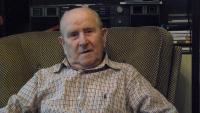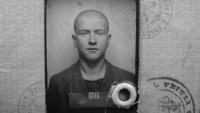We had soon realized where they were taking us

Download image
Sirotić Milan was born on 8 June 1925 in Šćulci village in the Buzet county, in the north of Istria. He finished 5 grades of Italian elementary school. As a child he helped his parents in farming land. Before the fall of Italy on 15 August 1943 the Italian carabinieri arrested him under suspicion of being a supporter of the anti-fascist movement. Through the city of Kopar, he was taken to the Italian camp Cairo Montenote in Savoia. There, the Italians were questionning him but not maltreating. After the capitulation of Italy, the Germans took the prizoners to Mauthausen. When they arrived to the station, the Hitler’s youth were awaiting for them so they could spit and insult them. On the way to the camp, he testified the first murder of a fellow prizoner. In the camp they were beaten up and maltreated every day. He remembers the cold showers at night in winter time. He left Savoia to labour work in Linz in a car factory. He survived the bombing of the allies. By the end of April 1945 he was freed by the Americans and returned home with the first transport.

